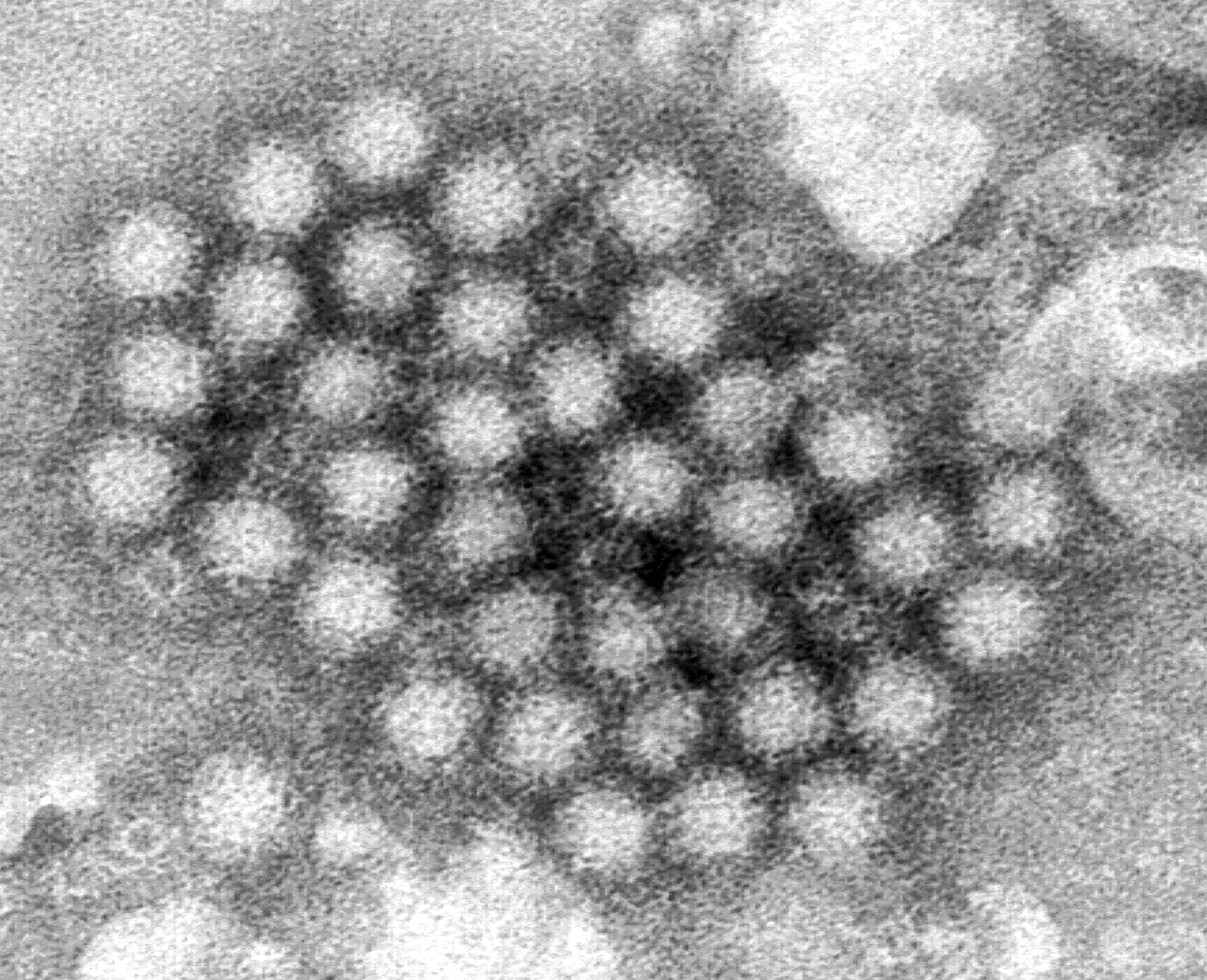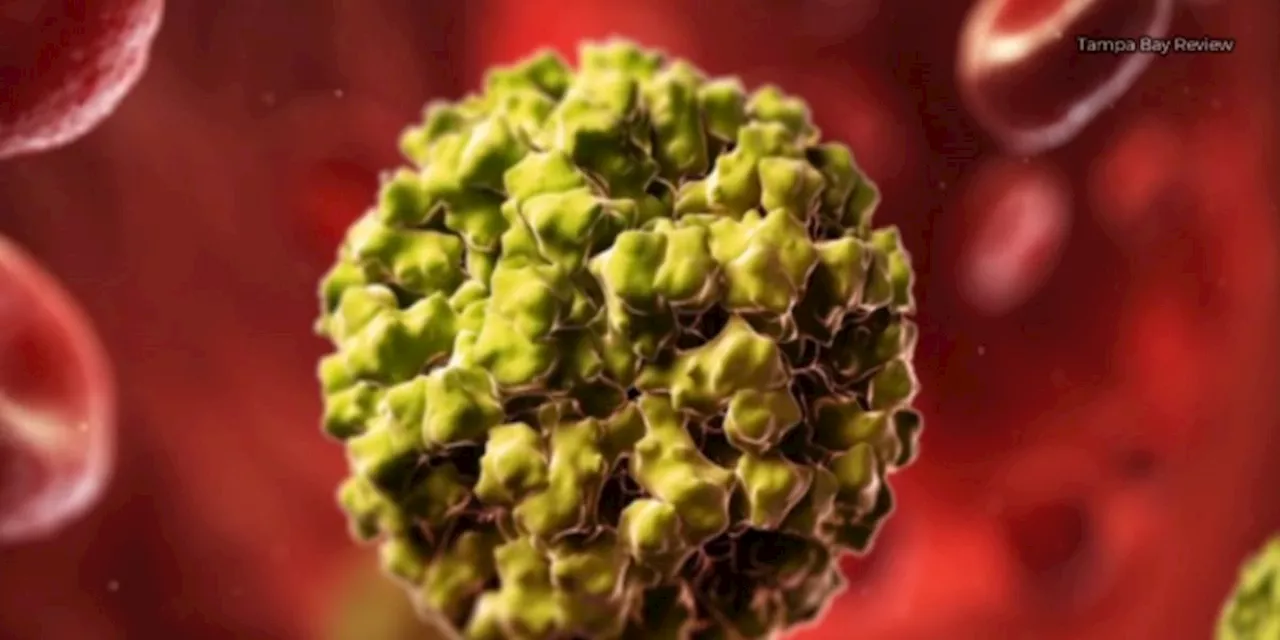Norovirus, commonly known as the 'stomach bug,' is notorious for causing nausea, vomiting, and diarrhea. However, this year has seen a surge in cases, and experts are reminding the public that norovirus can also present with symptoms like fever, headache, and fatigue. This article delves into the various symptoms of norovirus, including the less common ones, and provides advice on how to manage the illness and prevent its spread.
Nick Blackmer is a librarian, fact-checker, and researcher with over 20 years of experience in consumer-facing health and wellness content. Norovirus, also known as the ' stomach bug ,' is a common illness that causes nausea, vomiting, and diarrhea. While these are the typical symptoms associated with norovirus, experts have noted that individuals experiencing norovirus infections may also exhibit symptoms commonly found in other viral infections, such as fever, headache, and fatigue.
This year has seen an unusually high number of norovirus cases, and experts are closely monitoring the situation. According to the latest data from the Centers for Disease Control and Prevention (CDC), there were 426 norovirus outbreaks in the 14 states participating in the NoroSTAT Surveillance Network in December, and the first two weeks of January saw 225 outbreaks. This surge surpasses the highest number of outbreaks recorded during 2012-2020, highlighting the current severity of the situation. Dr. Daniel Edwards, a physician in the Division of Pediatric Infectious Diseases and associate medical director for Pediatric Infection Control at University Hospitals Rainbow Babies & Children’s Hospital, explains that two individuals infected with the same virus can present with slightly different symptoms. While nausea, vomiting, and diarrhea remain the hallmark symptoms of norovirus, individuals may also experience fever, headache, body aches, chills, and fatigue. Dr. Edwards emphasizes that these additional symptoms are typical of viral infections, occurring when the immune system mounts a response to fight off the invading virus. It's important to note that some individuals infected with norovirus may not experience any symptoms at all. The severity and type of symptoms depend on factors such as the individual's immune system strength, the environment, and the viral load.Dr. Edwards states that higher viral loads are often associated with more severe or symptomatic disease. Unfortunately, there is no known way to accelerate the healing process for norovirus. The best course of action is to focus on rest, hydration, and supportive care. Norovirus is highly contagious and notoriously difficult to eliminate. It can persist on surfaces for weeks and requires the use of bleach for effective disinfection. The virus also mutates rapidly, leading to a lack of long-lasting immunity in individuals. Dr. Sood advises that meticulous attention to hygiene and environmental cleanliness is crucial to minimize the spread of norovirus among family members.
Norovirus Stomach Bug Symptoms Contagious Prevention Hygiene Viral Infection
United States Latest News, United States Headlines
Similar News:You can also read news stories similar to this one that we have collected from other news sources.
 The best ways to stay safe from the norovirus, aka the winter vomiting bugAn infectious disease expert explains.
The best ways to stay safe from the norovirus, aka the winter vomiting bugAn infectious disease expert explains.
Read more »
 Food Poisoning vs. Stomach Bug: How to Tell the Difference and Recover FasterLearn how to differentiate between food poisoning and a stomach bug, and discover tips for managing symptoms and preventing future outbreaks.
Food Poisoning vs. Stomach Bug: How to Tell the Difference and Recover FasterLearn how to differentiate between food poisoning and a stomach bug, and discover tips for managing symptoms and preventing future outbreaks.
Read more »
 Norovirus Cases Surge Nationwide, Chicago Sees OutbreaksThe number of positive norovirus cases has been steadily increasing across the United States, according to the Centers for Disease Control and Prevention (CDC). Chicago's health department has reported several small outbreaks of suspected norovirus in recent months, aligning with the national trend. Norovirus, also known as 'the stomach bug', is highly contagious and causes sudden vomiting and diarrhea.
Norovirus Cases Surge Nationwide, Chicago Sees OutbreaksThe number of positive norovirus cases has been steadily increasing across the United States, according to the Centers for Disease Control and Prevention (CDC). Chicago's health department has reported several small outbreaks of suspected norovirus in recent months, aligning with the national trend. Norovirus, also known as 'the stomach bug', is highly contagious and causes sudden vomiting and diarrhea.
Read more »
 Norovirus Cases Surge Nationally, Chicago Reports OutbreaksNorovirus cases are on the rise nationwide, with January numbers more than doubling those seen in November. Chicago's health department reports several small outbreaks, emphasizing that norovirus usually sees a surge from November to April. The highly contagious virus, often called the 'stomach bug,' is spread through direct contact and causes vomiting and diarrhea. Experts warn that hand sanitizer is ineffective against norovirus, and the virus can linger in feces for weeks.
Norovirus Cases Surge Nationally, Chicago Reports OutbreaksNorovirus cases are on the rise nationwide, with January numbers more than doubling those seen in November. Chicago's health department reports several small outbreaks, emphasizing that norovirus usually sees a surge from November to April. The highly contagious virus, often called the 'stomach bug,' is spread through direct contact and causes vomiting and diarrhea. Experts warn that hand sanitizer is ineffective against norovirus, and the virus can linger in feces for weeks.
Read more »
 Moderna's Norovirus Vaccine Trial Shows PromiseModerna is testing a norovirus vaccine in a phase three trial with results expected as soon as this year. The trial is enrolling ahead of schedule, driven by a spike in norovirus cases this winter. While the vaccine targets specific norovirus genotypes, researchers hope it may offer broader protection. Moderna aims to reduce the severity of norovirus illness and prevent complications, particularly in vulnerable populations like seniors.
Moderna's Norovirus Vaccine Trial Shows PromiseModerna is testing a norovirus vaccine in a phase three trial with results expected as soon as this year. The trial is enrolling ahead of schedule, driven by a spike in norovirus cases this winter. While the vaccine targets specific norovirus genotypes, researchers hope it may offer broader protection. Moderna aims to reduce the severity of norovirus illness and prevent complications, particularly in vulnerable populations like seniors.
Read more »
 Alaska Sees Increase in Flu, RSV Cases Amidst National Norovirus SurgeAlaska is experiencing a rise in both influenza and respiratory syncytial virus (RSV) cases, coinciding with a national surge in norovirus. While influenza primarily affects the Kenai area, the Yukon-Kuskokwim Delta, and Northwest regions of the state, both viruses are treatable. Norovirus, often referred to as the stomach flu, is highly contagious and spreads easily. The CDC recommends thorough handwashing with soap and hot water for at least 20 seconds as the most effective preventive measure against norovirus.
Alaska Sees Increase in Flu, RSV Cases Amidst National Norovirus SurgeAlaska is experiencing a rise in both influenza and respiratory syncytial virus (RSV) cases, coinciding with a national surge in norovirus. While influenza primarily affects the Kenai area, the Yukon-Kuskokwim Delta, and Northwest regions of the state, both viruses are treatable. Norovirus, often referred to as the stomach flu, is highly contagious and spreads easily. The CDC recommends thorough handwashing with soap and hot water for at least 20 seconds as the most effective preventive measure against norovirus.
Read more »
